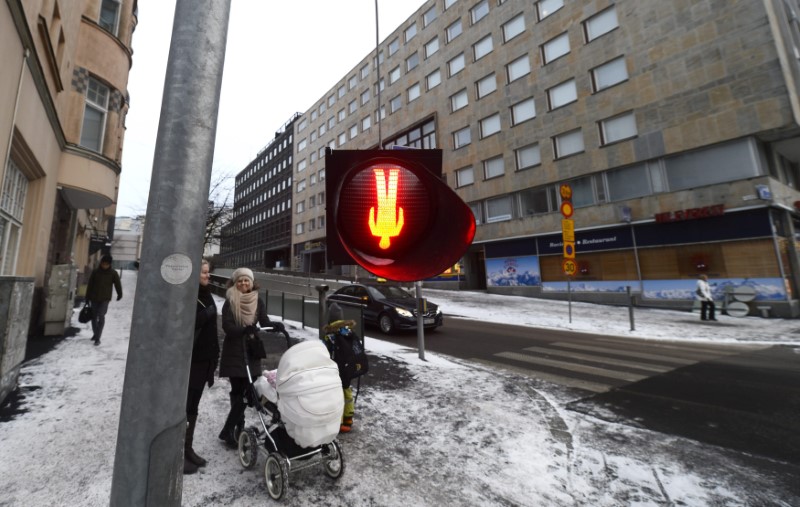Nokia’s decline, recession in Russia factors in country’s economic stagnation

HELSINKI (Reuters) — Finland's economy will grow faster than earlier predicted over the next few years, but the ageing population and rigid labour markets will drag it down over the longer term, the finance ministry said on Tuesday. Citing recovering exports, the ministry increased its growth projections for 2017, 2018 and 2019.
It now expects Finnish GDP to grow 2.9 per cent this year, 2.1 per cent in 2018 and 1.8 per cent in 2019. In June, it had forecast growth of 2.4 per cent, 1.6 per cent and 1.5 per cent, respectively.
But further out, in 2020 and 2021, the ministry said growth would be just 1.3 per cent and 1.1 percent, respectively, and average growth in 2020-2030 would be below 1.5 percent.
"This growth sprint will be a temporary one... The general conditions for economic growth have not changed to such an extent as to increase the economy's growth potential," senior official Mikko Spolander told a news conference.
Finland is recovering from a decade of stagnation sparked among other things by a decline of Nokia's former phone business and a recession in neighbouring Russia.
Nokia was once dominant in Finland, providing four per cent of its GDP and 20 per cent of its exports.
Spolander, who is director general of the ministry's economics department, said the time was right now for further government reforms to boost employment.
The centre-right government, led by Prime Minister Juha Sipila, has aimed to boost growth and curb public debt growth by cuts in spending and workers' benefits, but it has so far struggled to push through major reforms in the economy.
The ministry said general government debt would fall slightly below 60 per cent by 2021 but said that it would bounce back up afterwards.




